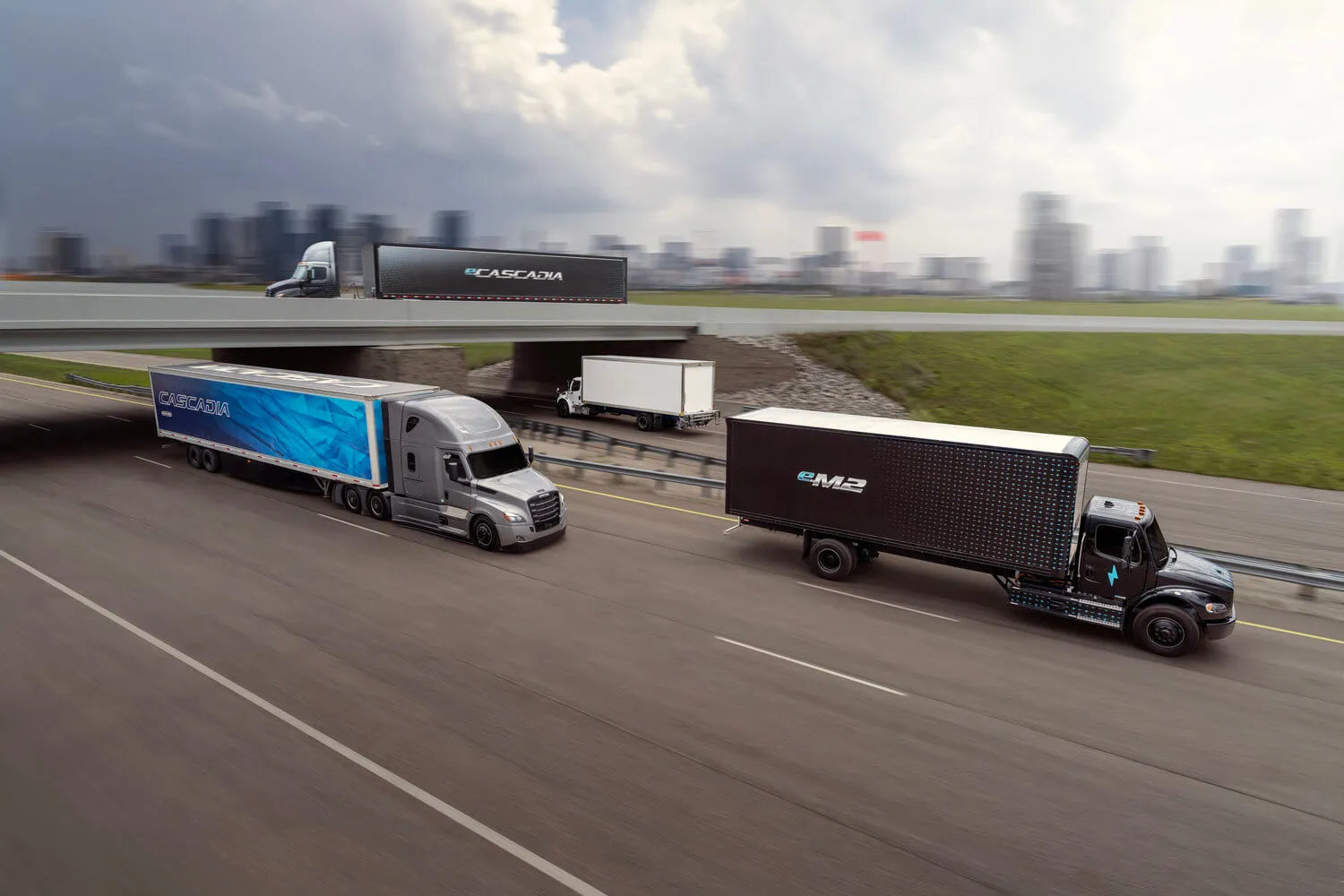
The hype around electric vehicles is not confined to cars and SUV’s. The trucking industry is shifting towards sustainability and innovation, meaning electric vehicles are impossible to ignore. The heavy-duty and vocational truck sector is starting to make the leap to electric vehicles, and many of our customers are left with questions about how that will look in the future.
In this blog post, we’ll address some common questions and concerns and highlight the exciting prospects that electric heavy-duty trucks bring to the trucking world.
It’s a common misconception that electric heavy-duty trucks have a limited range, leaving drivers stranded mid-route. Advancements in battery technology have significantly improved the range of electric trucks. Modern electric trucks can cover substantial distances on a single charge, making them suitable for long-haul routes. Charging infrastructure is rapidly expanding in Western Canada, offering convenient charging solutions for all your journeys.
Western Canada is witnessing a rapid expansion of charging infrastructure to support growing demand for electric heavy-duty vehicles. Charging stations are strategically located along major transportation routes, ensuring that your fleet can recharge efficiently during long-haul operations. Government incentives and initiatives are also accelerating the development of a robust charging network, making the transition to electric heavy-duty trucks smoother and more accessible.
Electric trucks are not just for city deliveries; they are built to tackle the rugged demands of vocational work. Electric trucks offer instant torque, making them well-suited for heavy-duty tasks. With fewer moving parts than traditional diesel engines, electric trucks require less maintenance, ensuring your fleet stays in optimal condition on the road for longer.
This year, Norway launched the first electric snow-removal truck to keep roads safe during the cold winter. With a promising performance, the battery life on the truck went from 90% to 28% after 9 hours of snow removal. The energy consumption was roughly 182 kWh per 100 km in harsh winter conditions.
Many manufacturers are testing more and more in extreme weather conditions, which Western Canada typically sees for over half the year, especially in Northern BC, making EV trucks more reliable in colder climates.
While the upfront cost of electric trucks may be higher, the total cost of ownership often proves to be lower in the long run. With reduced maintenance costs, lower fuel expenses, and government incentives for electric vehicle adoption, your fleet can experience significant savings over time. As technology advances and production scales up, the initial purchase price of electric trucks is expected to decrease.
As Western Canada sets the stage for the electric revolution in trucking, now is the time to explore the benefits of electric vehicles for your fleet. Overcoming initial concerns about range, charging infrastructure, performance, and costs, electric heavy-duty trucks offer a promising and sustainable future for the trucking industry.
Embrace the change, reduce your environmental footprint, and position your fleet at the forefront of heavy-duty and vocational trucking innovation. Velocity Truck Centres is a partner for all truck types, including heavy-duty EVs.